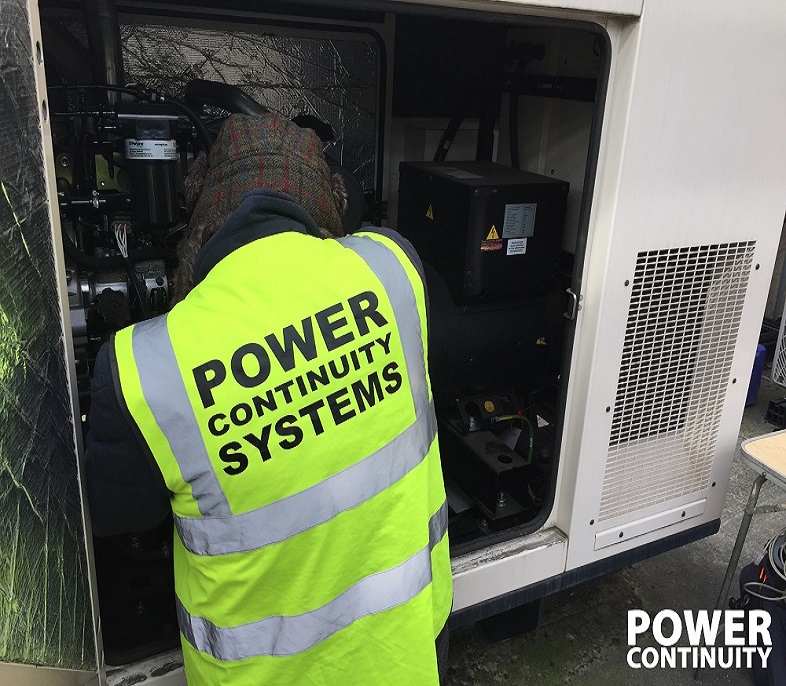Empowering Power: The Vital Role of Generator Servicing and Maintenance
In a world driven by technology and reliant on uninterrupted power, generators emerge as silent guardians, ensuring a seamless flow of electricity when the grid falters. However, the reliability of these essential machines hinges on a critical factor often overlooked – regular servicing and maintenance. The process of caring for generators is more than just a routine; it’s a proactive measure to safeguard against unexpected breakdowns, ensuring they stand ready to deliver power whenever needed.
Generator servicing and maintenance form the backbone of a robust power backup strategy. These tasks go beyond the occasional check-up; they involve a systematic approach to guaranteeing the optimal performance and longevity of the generator. The benefits of such diligence extend far beyond preventing inconvenient power outages; they contribute to cost savings, environmental sustainability, and the overall operational efficiency of businesses and institutions.
At the heart of generator servicing is the periodic inspection of key components. This includes a thorough examination of the engine, fuel system, lubrication system, electrical components, and control panel. Regular checks ensure that potential issues are identified before they escalate, preventing costly repairs and downtime. A well-maintained generator not only operates more reliably but also extends its lifespan, providing a higher return on the initial investment.
The fuel system is a critical focus during generator servicing. Over time, fuel can degrade, leading to clogged filters, injectors, and carburetors. Regular maintenance involves fuel testing, cleaning, and replacing filters as needed. This meticulous attention to the fuel system not only ensures a constant fuel supply to the generator but also enhances fuel efficiency, reducing operational costs and minimizing the environmental impact.
Lubrication is another cornerstone of generator maintenance. The engine’s moving parts require proper lubrication to function efficiently and avoid premature wear and tear. During servicing, technicians check oil levels, inspect for oil leaks, and replace the oil and filters as necessary. This process not only safeguards the engine but also contributes to fuel efficiency and reduces emissions.

Electrical components and the control panel are pivotal aspects of generator functionality. Routine checks involve inspecting wiring, connections, and control mechanisms to identify any potential electrical issues. A well-maintained control panel ensures accurate monitoring and control of the generator, enabling swift responses to changing power demands. Addressing electrical concerns promptly helps prevent malfunctions and ensures a consistent and reliable power supply.
Regular servicing is not only about reacting to issues but also about preventing them. Predictive maintenance techniques, such as vibration analysis and thermal imaging, can be employed to identify potential problems before they manifest. This proactive approach minimizes the risk of unexpected failures and maximizes the generator’s availability when it is most needed.
Beyond the technical aspects, environmental considerations play a significant role in generator servicing. Proper disposal of waste materials, such as used oil and filters, is essential to mitigate the environmental impact. Additionally, adhering to emission standards through regular maintenance helps reduce the carbon footprint associated with generator operation, aligning with global efforts towards sustainability and responsible energy consumption.
For businesses and organizations, the impact of generator servicing goes beyond the immediate operational benefits. It is an investment in reliability and resilience. A well-maintained generator provides peace of mind, especially in regions prone to power fluctuations or during critical situations like natural disasters. In sectors where uninterrupted power is mission-critical, such as healthcare, data centers, and telecommunications, generator servicing becomes an indispensable aspect of risk management and business continuity planning.
In conclusion, generator servicing and maintenance are not mere technicalities but integral components of a comprehensive power management strategy. The diligence applied to these tasks ensures that generators stand ready to fulfill their vital role in times of need. From preventing unexpected breakdowns to optimizing fuel efficiency and minimizing environmental impact, the benefits of regular servicing ripple across various facets of operation. As we embrace a future where reliable power is non-negotiable, the significance of generator servicing becomes more apparent than ever, empowering businesses and institutions to thrive in an electrified world.

Recent Post
What is The Meaning of a Medusa Tattoo?
January 9, 2025
The Meaning of Encanto in Spanish and Origin
January 4, 2025
Equivalent Phrases For “Including But Not Limited To”
December 30, 2024
How To Make Weekend Greetings More Fun?
December 30, 2024
10 Modern Sayings Similar To “Be There Or Be Square”
December 30, 2024








